Contents
- 1 What Sparked the French Revolution? Understanding Its Causes
- 2 Key Events of the French Revolution: From the Bastille to the Guillotine
- 3 The Most Important Causes of French Revolution
- 4 Declaration of the Rights of Man and Citizen: A Revolution Document
- 5 Lasting Legacy: How the French Revolution Shaped the Modern World
There are some events in history that completely change the course of world history and the political course of countries. For example, the invention of writing, geographical discoveries and movements such as the Renaissance are just a few of these events. At this point, it is very obvious that one of the most important events that completely changed the world political and social history is the 1789 French Revolution.
Although this event occurred approximately 250 years ago, its effects on the entire world still continue. It should not be forgotten that the consequences of such era-ending historical events will continue to emerge even after a few hundred years. In line with that when we come to this subject in school textbooks or lessons, we all remember the phrases “If they can’t find bread, let them eat cake.” “The people, who were oppressed under heavy taxes, rebelled and, during the French Revolution, raided the palace full of riches and executed the king.” Or “Nationalism movements that started due to that historical event caused the collapse of empires.”
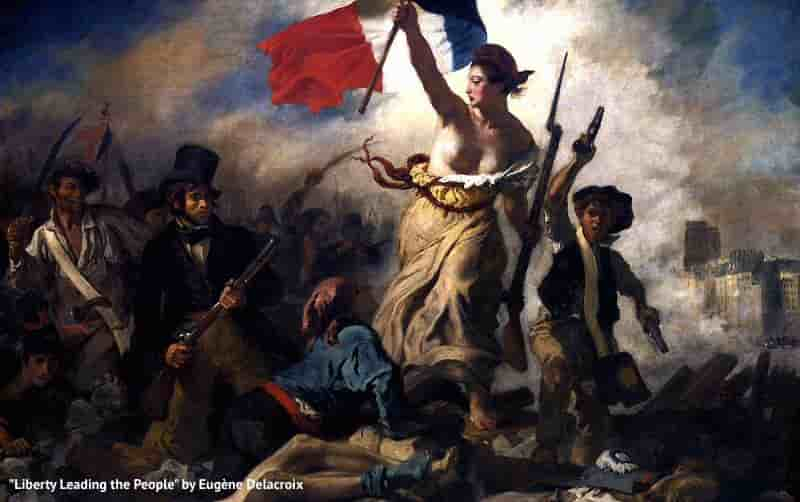
What Sparked the French Revolution? Understanding Its Causes
Actually, the phrases are very familiar to all of us. Aren’t they? In this context as those who read Victor Hugo‘s masterpiece “The Last Day of a Condemned Man” know very well, there were masses of people who were executed by guillotine and were crushed under oppression in France of that royalty period. Firstly, V. Hugo was criticized a lot for this book at that time, and great pressure was put on him both literary and socially among the royal supporters.
Then, of course, history has proven him right with its impartial judgment. On the other hand, as you will notice in the articles of the authors on this subject on TV programs or in newspaper columns; everyone interprets the French Revolution differently according to their own political or social approach. We think that impartial and realistic opinions are needed on this issue.
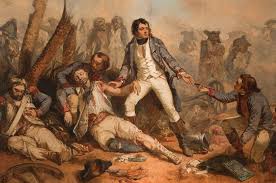
The French revolution process, which lasted 10-15 years according to some historians, perhaps led to the birth of Napoleon Bonaparte and his becoming an irresistible power. On the other hand, as you can easily understand if you have taken a look at our other articles, we will not deal with the events and facts in a rote way, but will try to interpret them according to the conditions of the period.
Napoleon’s role in this revolution is important. But it was actually right after this revolution that it became more prominent on the stage of history. In a strange twist of fate, he later seized power, returned to the monarchy and declared himself emperor. You can read about that period in detail in the book War and Peace, including the French-Russian wars of 1805 and 1812 and the occupation of Moscow. Whether you like it or not, it has a very important role in world and French history.
Key Events of the French Revolution: From the Bastille to the Guillotine
The French Revolution 1789, in the shortest sense, was the overthrow of the royal administration based on monarchy in France and the establishment of the Republican administration based on the representation of the people. At this point it is known that; With the Revolution, the new age ended and the modern age began. In this sense, the French Revolution is an event that closes and opens eras. As we will detail below, this movement also had harsh impacts on the Catholic Church which had a very important place in Europe administrations at that time.
On the other hand, with this revolution, nationalist movements began and the church needed to make innovations and reforms. The French Revolution began when the people, who were oppressed by heavy taxes and poverty as a result of long wars at that time, raided the Bastille prison, known as the symbol of the King’s rule, representing the absolute monarchy. Then people released the prisoners inside the Bastille Castle. Considering the conditions of that period, it is very surprising that such a revolution took place.
Moreover, if we consider that the Europe of the period was a period of kingdoms and absolute monarchies, we can understand how negatively these kings and their governments viewed an innovative country that overthrew the kingdom right near to them.
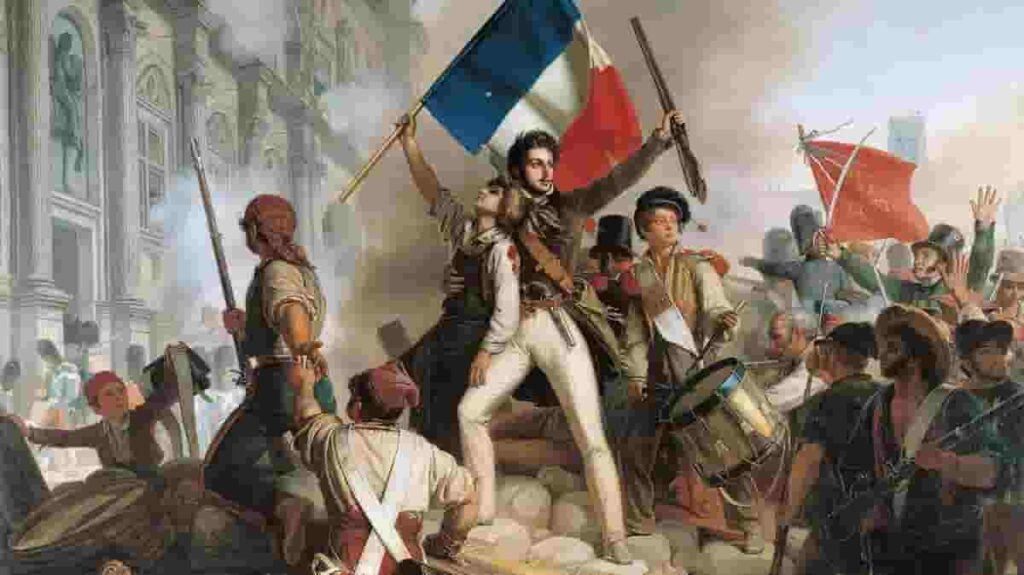
The People’s Power was Crucial!
At this point, it should be noted that due to the kings’ distant attitude towards the revolution, the French Revolutionary Wars which would last for many years started in 1792, sometime after the French Revolution. These wars took place between young revolutionary French republicans and European countries such as England, which were pro-monarchy and continued for about 10 years. As a result of the Revolutionary Wars, hundreds of thousands of French and European people mutually massacred each other.
If we consider that even today, leaders who have accumulated power in their hands have, difficulty giving up their power, we understand how difficult it was for the kings or the church leaders to give up their absolute power. However, when the people united, they turned into an irresistible force and that historical event took place in these circumstances.
The Most Important Causes of French Revolution
Before coming to the details of the bloody French Revolution 1789, it would be appropriate to take a look at the reasons for this revolution, which caused the execution of the king of the period, XVI. Louis, and his wife, the Queen Marie Antoniette. (Then the subsequent death of hundreds of thousands of national people of course) First of all, we have to emphasize that before the revolution, the level of book reading and education in society, such as the common people and the bourgeoisie, became widespread. In other words, we can say that the spark of the revolution first burned in the minds.
Along with this, the bourgeois class wanted to further increase its economic power and have a say in the administration.
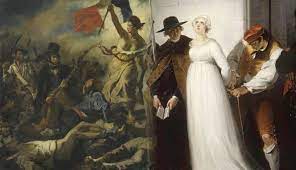
At this stage, it should be noted that the bourgeois class already was actually a very rich class. However, like every community that has gained economic power, the bourgeois class now wanted to become a political power and direct politics. The people, on the other hand, were overwhelmed by the arbitrary decisions of the king and were demanding freedom while being crushed under taxes. At this point, we can say that the American War of Independence, which took place in 1776, affected the French people intellectually. The French kingdom secretly supported the colonies to wage a war of independence against the British, and especially the financial support caused the French treasury to become even weaker.
The basic causes of the Revolution
- The poor condition of the French Treasury as a result of many years of going wars,
- Attempting to collect taxes from the public in order to strengthen the treasury at a level they cannot pay,
- The existence of philosophers and thinkers such as Voltaire and Descartes and the influence of critical thought on society,
- Generation of new ideas in society by increasing the level of book reading and education,
- The bourgeois class’ desire to increase its power as a political actor,
- The people’s economically poor conditions.
However, the exact reasons for the French Revolution are too numerous to be listed in just one or a few items. We have to say that there were many social, political and economic topics or issues that we cannot list here had a direct or indirect impact on the Revolution.
Declaration of the Rights of Man and Citizen: A Revolution Document
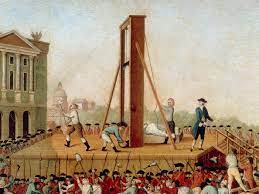
The French Revolution was not a process that happened in one day. However, the storming of the Bastille prison and the release of the prisoners inside on July 14, 1789 is considered the official beginning of the Revolution. The Tennis Court Oath incident before this event and the Declaration of Man and Citizen Rights published after the outbreak of the revolution are very important titles regarding the history of the revolution. In addition, when it comes to the history of the that Revolution, this process lasted more than 15 years in total and finally entered a painful period with the rise of Napoleon.
The Tennis Court Oath
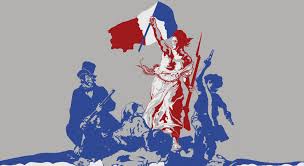
The Tennis Court Oath incident is an important stage in the beginning of the revolution. This incident, which caused the king to feel the footsteps of the revolution more closely, also showed the determination of the people. At this stage, when the French King did not recognize the decisions of the assembly convened by the people and the bourgeois class, the people gathered on the tennis court next to the Palace of Versailles on June 20, 1789. They took an oath, today called the Tennis Court Oath that they would not leave until their demands were accepted.
In this point, the clergy representing the religious segment also joined the revolutionaries consisting of the bourgeoisie and the people. This situation increasingly cornered the French King Louis XVI.
The Storming of the Bastille Prison
After the tennis court oath incident, the parliament gathered by the ordinary people and bourgeois class conveyed their wishes to King Louis XVI., including the reduction of the king’s powers and the liberalization of trade by giving up the monarchy. The king did not accept these demands and then the people attacked the prison in the Bastille Castle which is considered the symbol of the monarchy, on July 14, 1789 and released the prisoners there. The rebels who took the weapons and gunpowder here used these materials in the revolution. The storming of the Bastille Prison, a symbol of the monarchy and the king’s tyranny, is considered the beginning of the French Revolution.
The Declaration of Citizen Rights
Shortly after the Storming of Bastille Prison which is considered the starting point of the French Revolution, the bourgeois class and the people who initiated that big historical event, declared the Declaration of the Rights of Man and Citizen on August 26, 1789. Articles such as that the sovereignty belongs to the nation, people are born equal and they should live as independent and free individuals which form the basis of liberal democracy even today, were included in this declaration at that time.
At this point, it is clear that the 1215 Magna Carta influenced this declaration. Principles that evoke the Republican management system in today’s sense, such as “sovereignty cannot be in the hands of a group or individual” and “no one can be evaluated positively or negatively because of their religious beliefs” were also included in the Declaration of Man and Citizen Rights. Meanwhile, this declaration also formed the basis for the French Constitution created by the revolutionary team in 1791.
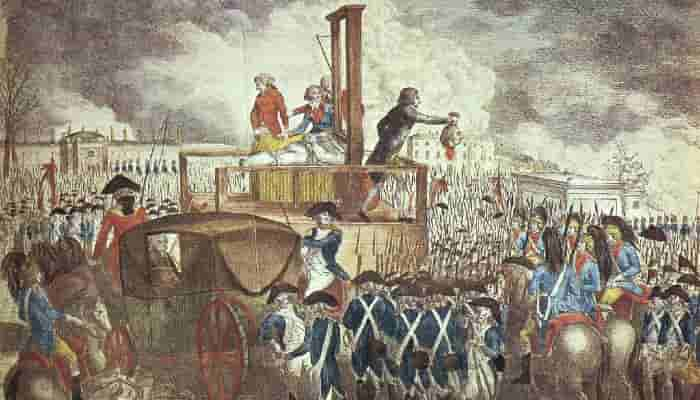
Lasting Legacy: How the French Revolution Shaped the Modern World
Even today, we see the impacts and consequences of the French Revolution in our daily lives and in political and social developments. Actually, republican administration system, sovereignty belonging to the nation and secular administration are based on the 1789 French Revolution. Along with emerging of the republic, the kingdoms in Europe became uneasy and started wars, also called the Revolutionary Wars, in order to prevent the new republic soul from spreading to their own countries. On the other hand, this revolution had many social, political and even economic consequences. We will briefly talk about the most important items here.
There are many important results and effects such as the beginning of nationalist movements in Europe, the end of the new era and the beginning of the modern era, the end of the kingdom in France and the establishment of the republic administration. In addition of these results, the internal unrest brought about by the turbulent environment and the French Revolutionary Wars also led Napoleon to declare himself emperor in 1804. As we mentioned, that historical process, a process that lasted approximately 15 years, led to the beginning of the Napoleon Bonaparte era.
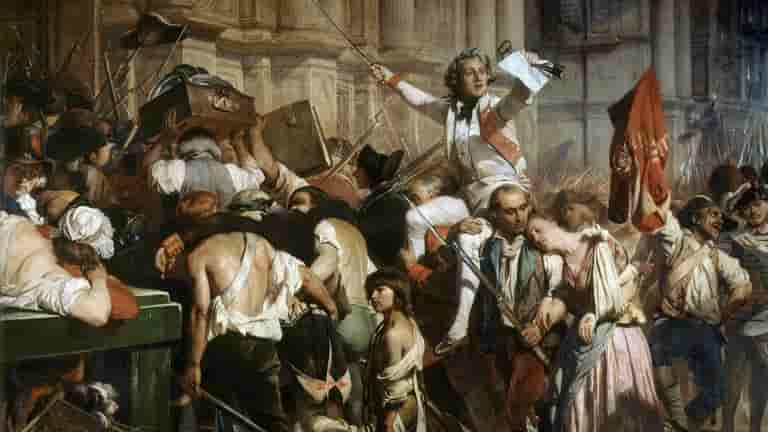
The Most Important Results of It
- Individual freedoms have increased and creating suitable environments for the birth of new ideas.
- With the movements of nationalism, the power of kingdoms and empires was shaken and their collapse process began.
- It has been seen that Absolute Monarchy and kingdoms can collapse against the power of the people.
- It was accepted that sovereignty and sovereignty unconditionally belonged to the people.
- After the revolution, innovative ideas and freedoms spread, thus ending the New Age and beginning the Modern Age.
- International concepts such as freedom, equality, justice and the rule of law have become stronger, leading to the emergence of liberal democracy in today’s sense.
Historians do not have a common consensus on the causes, consequences and impacts of the French Revolution which changed the course of world history and opened and closed an era. At this point, we have tried to compile this subject for you in our impartial and unique style. The last thing we want to emphasize on this subject is about the sentence of “If they cannot find bread, let them eat cake“, which was dedicated to Queen Marie Antoinette, wife of the French King Louis XVI. before the revolution. This statement, which is claimed to have been made about the French people being poor and were unable to find even bread is not actually true.
Nevertheless, one of the consequences of the revolution was the execution by hanging of the former French King Louis XVI. in January 1791, and then of Queen Antoinette in October. The people that carried out the French Revolution first imprisoned the king and queen and then executed them when they sensed the possibility of a counter-revolution by royal and monarchy supporters.
